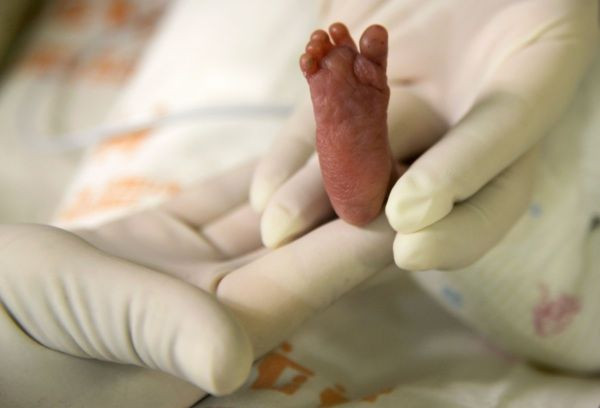Can A Baby Have 3 Parents? First Child Born With DNA From Several People Welcomed By Couple From Jordan

Modern day medicine and technology could potentially eradicate several genetic mutations passed down from parent to child after the first baby with DNA from three people was born in April. A five-month-old baby was born successfully with the help of what doctors are calling a "revolutionary" three-parent fertility technique that allows parents with rare genetic mutations to procreate without passing down the mutated genes, New Scientist reported on Tuesday.
The child’s parents were cared for by United States doctors at a Mexico base.
The mother carries genes for Leigh syndrome, which the National Organization for Rare Disease describes as a degeneration of the central nervous system, affecting the development of the brain, spinal cord and optic nerve. The genes, which come from DNA in the mitochondria (tiny structures in cells), can only be passed down from a mother.
The mother has not been affected by the genes but Leigh syndrome claimed the lives of the couple’s first two children. With the help of New York City’s New Hope Fertility Center doctor John Zhang, the mother was able to give birth to a healthy baby and may have avoided passing down threatening Leigh syndrome genes.
Using Zhang’s three-parent technique, doctors conducted a “spindle nuclear transfer” by removing the nucleus from one of the mother’s eggs and putting it into a donor egg that also had its nucleus removed. The two-parent egg was then fertilized with the father’s sperm, and the embryo was later implanted back into the mom.
Doctors only found one percent of mitochondria carrying Leigh syndrome in the little boy. The baby will continue to be monitored for increase in the genes, but doctors said it takes about 18 percent of mitochondria to be affected before Leigh syndrome symptoms start to effect a child.
Zhang’s three-parent technique is still considered controversial in the medical world. However, the method is approved in the United Kingdom. Following news of the child's birth, doctors from King’s College London told New Scientists that the baby's arrival is "great news and a huge deal" for progressive medicine.
© Copyright IBTimes 2025. All rights reserved.





















